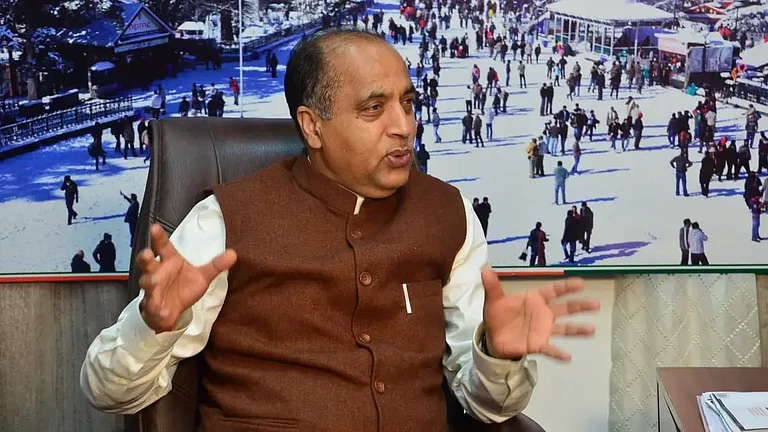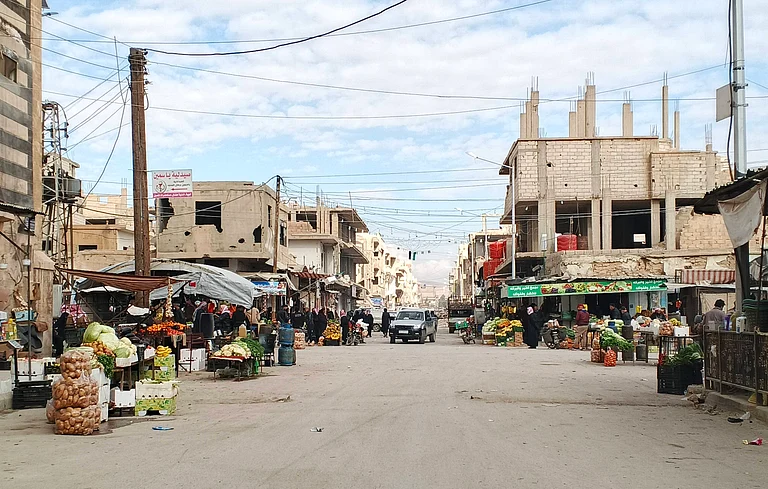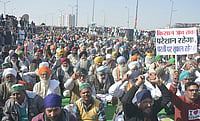The US military on Sunday killed two leaders of the terrorist group ISIS in Syria, dealing another blow to the group.
The killings of two ISIS leaders comes within two weeks of the death of the ISIS chief Abu al-Hassan al-Hashimi al-Qurayshi. Abu al-Hassan's death was announced by the ISIS on November 30. While specifics were not released, the ISIS said he died in battle.
The US military's Central Command (CENTCOM) said the US military personnel killed the two ISIS leaders in a helicopter raid Eastern Syria.
One of the two ISIS leaders, Anas, was a Syria province official, said CENTCOM in a press release. The ISIS central leadership has divided the world into provinces where ISIS affiliates operates on behalf of the central leadership, serving as ISIS branches of sorts.
"US Central Command forces conducted a successful helicopter raid in eastern Syria at 2:57 a.m. local time on December 11, killing two ISIS officials including Anas, an ISIS Syria Province Official who was involved in the group’s deadly plotting and facilitation operations in eastern Syria. Extensive planning went into this unilateral operation to ensure its success. Initial assessments indicate no civilians were killed or injured," said CENTCOM.
This is the latest US operation targeting ISIS leaders in the region. Experts say this suggsets that the US intelligence-gathering in the region is strong.
ISIS a threat to stability, security in region: US
The ISIS at one point controlled large parts of Iraq and Syria and had established a state called Caliphate. It managed those areas very much like an actual state would, governing as per its own own and providing municipal services.
The ISIS Caliphate was, however, over by March 2019 when the US-backed coalition recaptured the last ISIS-held village called Baghouz in Syria.
Despite the fall of the Caliphate, the US considers ISIS a threat to the region.
CENTCOM spokesperson Joe Buccino said, “ISIS continues to represent a threat to the security and stability of the region. This operation reaffirms CENTCOM’s steadfast commitment to ensuring the group’s enduring defeat. The death of these ISIS officials will disrupt the terrorist organization’s ability to further plot and carry out destabilizing attacks in the Middle East.”
The CENTCOM further said the ISIS continues to pursue an aggressive operational agenda, including external attacks that threaten US allies and partners in the region and beyond.
Continuous setbacks to ISIS
The US killing of two ISIS leaders comes within two weeks of the death of its leader Abu al-Hassan al-Hashimi al-Qurayshi.
Abu al-Hassan was the second ISIS chief to be killed this year. His predecessor named Abu Ibrahim al-Hashimi al-Qurayshi was killed in a US operation in February in Syria.
Following Abu al-Hassan's death, the ISIS named its new chief as Abu al-Hussein al-Husseini al-Qurashi.
In July, a US drone strike killed top ISIS leader Maher al-Agal. He was one of the top five ISIS leaders at the time.
In June, a US strike killed Abu Hamzah al Yemeni, a senior leader of Al Qaeda-linked group Hurras al-Din, in Idlib province.
Following the news of the latest US raid, foreign policy and ISIS expert Kabir Taneja said such operations are "consistently depleting hierarchy" of ISIS.
"US counter-terrorism operations have been top-notch effective over past few months. Al Qaeda chief killed in Afghanistan in August. ISIS chief killed in Syria in November. And spat of anti-ISIS raids (not just drones) consistently depleting hierarchy," said Taneja on Twitter, also the author of book The ISIS Peril.
What's ISIS, what are its objectives?
The ISIS is a terrorist organisation which aims to create an Islamic state called the Caliphate the world over. The Caliphate is a term used to refer to the states ruled by early Muslim rulers called Caliphs.
The terrorist organisation is also called as ISIL at times, which stands for Islamic State of Iraq and Lavent (ISIL).
"ISIL’s stated goal is to solidify and expand its control of territory once ruled by early Muslim caliphs and to govern through implementation of its strict interpretation of sharia," says US Office of Director of National Intelligence's (DNI) National Counterterrorism Center.
The ISIS at its peak controlled large parts of Iraq and Syria where it had established a state of its own. But it has since been defeated there and it now relies on typical terrorist attacks and its affiliates in different part of the world.
"At its height, the ISIS held about a third of Syria and 40 per cent of Iraq. By December 2017, it had lost 95 per cent of its territory, including its two biggest properties, Mosul, Iraq's second largest city, and the northern Syrian city of Raqqa, its nominal capital," says think tank Wilson Center.
Presently, the ISIS has affiliates, or regional branches, in parts of the world which work to carry out its objectives. One such affiliate is Islamic State in Khorasan Province (ISKP) which is active in Afghanistan and is lodged in a turf war with Taliban which rules Afghanistan.
The ISIS and the Taliban are lodged in a tussle in Afghanistan as the two have different visions for Afghanistan and the world. The Taliban is a nationalist organisation whose ambitions are limited to having an Islamic state called an emirate in Afghanistan. The ISIS, on the other hand, has global ambitions and aims to create a global Islamic state called Caliphate.
Think tank Wilson Center expplains: "ISIS-K subscribes to the Jihadi-Salafism ideology — and plays up the ‘purity’ of its anti-idolatry credentials. The Taliban, on the other hand, subscribe to an alternative Sunni Islamic sectarian school, the Hanafi madhhab, which ISIS-K regards as deficient. The two groups also differ over the role of nationalism. ISIS-K fiercely rejects it, which runs counter to the Afghan Taliban’s aims of ruling over Afghanistan."

























